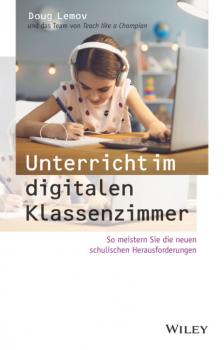John Wiley & Sons Limited
Все книги издательства John Wiley & Sons LimitedVerfahrenstechnik für Dummies
Wollen Sie sich für eine Veranstaltung an einer Uni oder Hochschule in Verfahrenstechnik schlau machen? Dann hilft Ihnen dieses Buch. Burkhard Lohrengel erklärt Ihnen freundlich und verständlich was Verfahrenstechnik überhaupt ist und welche chemischen und physikalischen Methoden Ihnen helfen, dort die richtigen Ergebnisse zu erzielen und welche Rolle Wärme dabei spielt. Dabei geht er teilweise ins Detail, behält jedoch stets das große Ganze im Auge. So hilft Ihnen dieses Buch beim Einstieg in die Verfahrenstechnik und dabei, den Überblick über das Thema zu behalten.
Correspondence, 1939 - 1969
At first glance, Theodor W. Adorno’s critical social theory and Gershom Scholem’s scholarship of Jewish mysticism could not seem farther removed from one another. To begin with, they also harbored a mutual hostility. But their first conversations in 1938 New York were the impetus for a profound intellectual friendship that lasted thirty years and produced more than 220 letters. These letters discuss the broadest range of topics in philosophy, religion, history, politics, literature, and the arts – as well as the life and the work of Adorno and Scholem’s mutual friend Walter Benjamin. Unfolding with the dramatic tension of a historic novel, the correspondence tells the story of these two intellectuals who faced tragedy, destruction, and loss, but also participated in the efforts to reestablish a just and dignified society after World War II. Scholem immigrated to Palestine before the war and developed his pioneering scholarship of Jewish mysticism before and during the problematic establishment of a Jewish state. Adorno escaped Germany to England, and then to America, returning to Germany in 1949 to participate in the efforts to rebuild and democratize German society. Despite the differences in the lifepaths and worldviews of Adorno and Scholem, their letters are evidence of mutual concern for intellectual truth and hope for a more just society in the wake of historical disaster. The letters reveal for the first time the close philosophical proximity between Adorno’s critical theory and Scholem’s scholarship of mysticism and messianism. Their correspondence touches on questions of reason and myth, progress and regression, heresy and authority, and the social dimensions of redemption. Above all, their dialogue sheds light on the power of critical, materialistic analysis of history to bring about social change and prevent repetition of the disasters of the past.
A Clinical Guide to Urologic Emergencies
A Clinical Guide to Urologic Emergencies A Clinical Guide to Urologic Emergencies An ageing population and a predicted shortfall in the number of urologists means that, increasingly, the management of complex urological problems will fall to hospital emergency departments and the surgeries of primary care physicians. With many doctors and medical students now having less exposure to urology, there is a real and urgent need for accessible and practical guidance in managing urologic emergencies. A Clinical Guide to Urologic Emergencies offers practical guidance to the best practices in diagnosis, treatment and management of patients with urgent urological conditions. Designed to be an extremely useful tool to consult in the clinical setting, it will be a vital source of information and guidance for all clinicians, irrespective of their level of urologic knowledge.Edited by an outstanding international editor team, this book is particularly aimed at physicians, advanced practice providers, and urology and emergency medicine trainees managing patients in diverse healthcare settings across the globe. A Clinical Guide to Urologic Emergencies is accompanied by a website featuring video content at www.wiley.com/go/wessells/urologic
Unterricht im digitalen Klassenzimmer
Schulschließungen als Reaktion auf Covid-19 stellen eine beispiellose Bedrohung für die Bildung von Kindern dar. Bereits der erste Lockdown hat zu einem Wendepunkt hin zum Online-, bzw. Hybridunterricht geführt. Es besteht ein neuer Bedarf nach Hilfestellungen, mit denen die sonst persönlich anwesenden Pädagogen beim erfolgreichen Übergang zu einem engagierten Online-Unterricht für ihre Schüler unterstützt werden können.<br> «Unterricht im digitalen Klassenzimmer» geht auf die Herausforderungen ein, die sich im Bildungswesen durch die Coronavirus-Pandemie ergeben haben. Doug Lemov und sein Team leiten Pädagogen mit Hilfe von in der Praxis gewährten Techniken an, Schüler erfolgreich im Online-Unterricht zu engagieren. Ziel des Buches ist es, zeitgemäße, einfach zu implementierende Strategien für Tausende von Pädagogen bereitzustellen, die gezwungen waren (und sind), sich auf den Online-Unterricht umzustellen. Behandelt werden Themen wie die Entwicklung von Online-Klassenkulturen, die Bekämpfung von Online-Ablenkungen, Vorteile und Grenzen des synchronen und asynchronen Lernens, verbale und visuelle Normen und Verfahren sowie die Nutzung von Online-Plattformen zur Maximierung der Lehrmöglichkeiten.<br> Unterstützt werden die Erläuterungen im Buch durch Videos, die den Einsatz in der Praxis zeigen.









